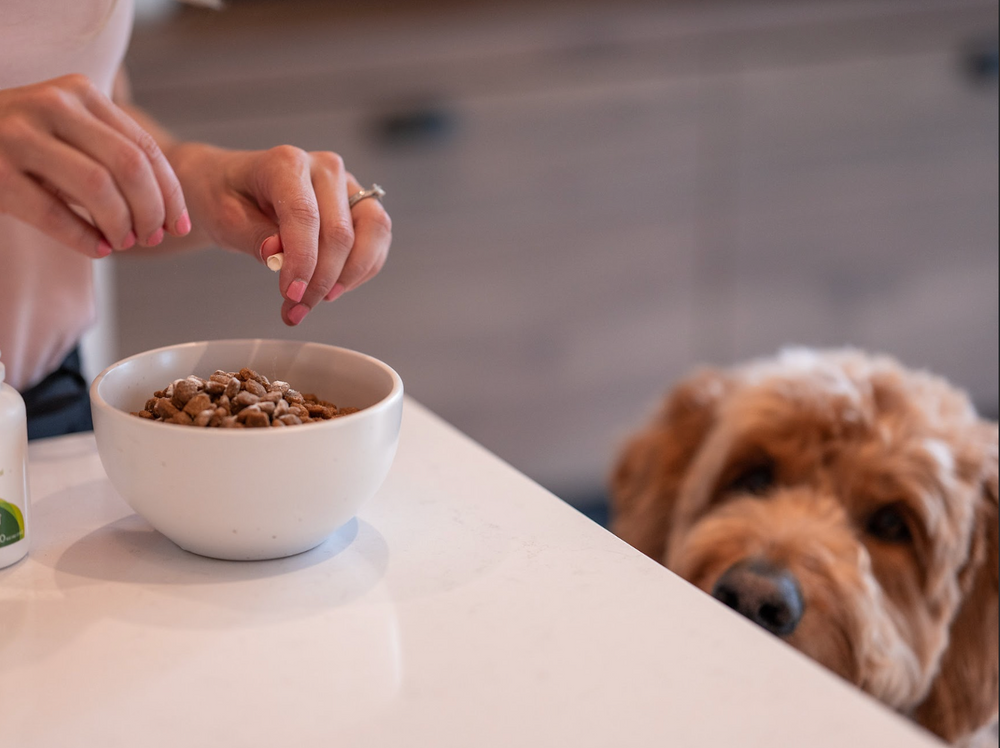Vet Insights: 7 Easy Pets for First-Time Owners (Beginner-Friendly Guide)
List of Contents
Bringing a pet into your home is an exciting milestone filled with joy and companionship. For first-time owners, it’s also a meaningful step toward learning responsibility and creating lasting bonds.
Caring for a pet teaches empathy, responsibility, and compassion at any age. It’s a simple, meaningful way to build lifelong life skills. But here’s the truth: pet ownership is a long-term commitment with real costs, such as food, vet care, and grooming. No matter the promises, adults should be prepared to take the lead.
Looking for the perfect first pet for yourself or someone you love? This quick guide shares 7 low-maintenance, high-reward animals ideal for beginners.
What to Know Before Choosing Your First Pet
Choosing your first pet is exciting, but it’s important to make an informed decision. From time commitment to care needs, here’s what to consider before bringing a new companion home:
Choose a pet you can commit to.
Pets have different life spans. Some, like rats, live 2–3 years, while others, like tortoises, can live over 20. Since owners (especially kids) often form strong bonds, it’s important to choose a pet you can commit to long-term.
Understand the costs involved.
Pet ownership isn’t cheap. Did you know that a dog can cost up to $17,000 over their lifetime? Costs include food, grooming, supplies, and regular vet visits. Exotic pets may require specialized veterinary care, which can make ownership even more expensive.
Does your home fit your pet?
Make sure you have enough space for your pet’s enclosure and its full-grown size. Limited space can affect your pet’s well-being and comfort. If you're considering a bird, remember they can be noisy and need room to move and stretch their wings.
Choose the right pet for your child’s age and personality.
If you are looking to find your child their first pet, be sure to choose a pet that matches their age and temperament. Fragile animals like small birds suit calmer kids, while reptiles aren't ideal for children under 5 due to Salmonella risks.
Pick a pet that matches your preferred interaction style.
Think about how your family wants to interact with a pet. Some animals, such as rats and guinea pigs, enjoy gentle handling and playtime. Others, such as finches or Greek tortoises, are better suited to quiet observation.
7 Best Pets for First-Time Owners (Easy & Low-Maintenance)
Getting your first pet is exciting, but choosing the right one matters. Some animals are easier to care for and better suited for beginners. This list highlights 7 low-maintenance, beginner-friendly pets that offer companionship without overwhelming responsibility.
#1. Betta fish (A low-commitment classic)

Betta fish are a classic low-maintenance choice for first-time pet owners. They can live comfortably in small 5-liter aquariums without a filter, making setup simple and stress-free. Plus, their tanks are budget-friendly, leaving you room to get creative with fun decorations.
They need basic care, including regular water changes and once-daily feeding. Their tanks should be cleaned consistently to keep them healthy. Important note: male Bettas must be housed alone, as they will fight if kept together.
#2. Guinea pig (The friendly rodent)

Guinea pigs are gentle, social rodents that rarely bite, making them great for first-time pet owners. They’re hardy, relatively low-maintenance, and thrive with regular interaction and care.
These friendly rodents are social pets that often squeak with excitement when they see their favorite humans. They love gentle interaction and will happily sit in a child’s lap. Their calm, friendly nature makes them ideal for first-time pet owners and families.
Guinea pigs are very social and do best in pairs. Two females are usually a safe choice, since males may fight. They enjoy companionship and regular interaction with their humans. With a 5–7 year lifespan, they’re a manageable long-term commitment for first-time pet owners.
#3. Domesticated rats (The affectionate brainiac)

Domesticated rats are smart, affectionate, and surprisingly low-maintenance. They even groom themselves! These social pets love to play, explore, and can be trained to do simple tricks. Their intelligence and friendly nature make them a great choice for first-time pet owners.
They are generally low-maintenance, but they do need a clean cage and daily playtime outside of it. Their social and intelligent nature means they thrive on interaction and mental stimulation. Because of this, they’re best suited for older children who can provide consistent care and attention.
Rats are highly social and happiest when kept in same-sex pairs. They thrive on companionship and regular interaction with their humans. With a lifespan of 2 to 3 years, they’re a short-term commitment that still offers plenty of affection and fun.
#4. Small lizards (Like a Leopard gecko or Bearded dragon)

Small lizards like Leopard geckos and Bearded dragons make great beginner pets due to their calm nature and low-maintenance needs. Bearded dragons are especially popular. They're hardy, gentle, and rarely bite. Their manageable size and easygoing temperament make them a top choice for first-time reptile owners.
Bearded dragons enjoy being handled and often form gentle bonds with their owners. Leopard geckos are also calm, docile, and easy to interact with. Both species are great for beginners looking for a hands-on reptile experience without the stress.
Reptile enclosures require specific care, including UV lighting and controlled temperatures to keep your pet healthy. Feeding involves insects, often live, which may not suit every household. While lizards are low-maintenance in behavior, their habitat setup takes extra planning and attention.
#5. Hermit crabs (The ultra-low maintenance starter)

Hermit crabs are fun, low-maintenance pets that are perfect for beginners. They require only a simple tank setup with gravel, a hiding spot, and access to fresh and saltwater. Their curious behavior and unique shell-switching habits make them surprisingly entertaining to watch.
Hermit crabs need daily fresh food, water, and regular misting to stay healthy and hydrated. They also molt as they grow, which means they’ll need access to larger shells over time. While care is simple, they require attention and consistency, making them a great way to teach responsibility.
#6. Small birds (Like a Parakeet or Finch)

Small birds like Parakeets and Finches make great starter pets thanks to their small size and relatively low-maintenance care. Parakeets are tidy, easy to feed, and don’t require much space. Their cheerful chirping and bright colors add energy and charm to any home.
Parakeets are social and affectionate, enjoying gentle handling and even learning to mimic words with regular interaction. Finches, on the other hand, are quiet, low-touch pets that thrive when simply observed in pairs or small groups.
Small birds are sensitive to sudden movements and loud noises, which can easily stress them out. Their fragile bodies also require gentle handling and a calm environment. That’s why they’re best suited for older, quieter children who can interact with care.
#7. Older dogs or cats (The common pet, handled wisely)

Older dogs and cats make excellent starter pets for families, especially those with kids. They’re usually calmer, more tolerant, and often already trained, making them easier to manage than energetic puppies or kittens.
Dogs and cats are long-term commitments that require daily care, time, and patience. However, the rewards are worth it. Children often develop confidence, emotional maturity, and stronger cognitive skills through pet companionship.
Don’t Skip This Step: Pet Immunity Matters for Every Animal
No matter the pet, whether it’s a guinea pig or a senior dog, immune health should never be overlooked. Weak immunity can lead to serious health problems over time. Zumalka’s IMMUNOPET offers gentle, natural support to help strengthen your pet’s defenses.
IMMUNOPET is a premium natural product designed to help support and strengthen your pet’s immune system. It’s ideal for pets of all ages and can be especially helpful during recovery, seasonal changes, or times of stress.
IMMUNOPET is made with gentle, plant-based ingredients to help support your pet’s long-term health, without harsh chemicals or side effects. This safe, expert-approved formula helps naturally strengthen immunity in pets of all ages and breeds.
FAQs
What is the single biggest commitment when getting a first pet?
The biggest responsibility of pet ownership is the financial and time commitment: vet bills, special care, and daily attention. Parents, in particular, must be prepared to take full responsibility if their child loses interest. The same principle applies to adults getting their first pet later in life.
Are smaller rodents like hamsters and mice good first pets?
While classic first pets, hamsters and mice, can be delicate, easily terrified of humans, and often nocturnal (meaning they will be active and noisy at night). Mice and hamsters can also spread infections. Guinea pigs and rats are generally recommended as better options.
Is it safe for young children to handle reptiles?
The CDC recommends that children under age 5 avoid handling reptiles, amphibians, and their environments because reptiles tend to carry Salmonella bacteria more frequently than other pets.
Why should I choose an older dog or cat instead of a puppy or kitten?
Young animals require a great deal of patience and training that kids typically lack the experience to handle. Older dogs and cats are usually more tolerant of kids and adjust better to new people, often being pre-trained.
Which first pets require companions?
Several social pets do better in groups, including Guinea pigs (prefer groups, adopt two females), rats (very social, get a pair), Canaries and Finches (flock animals, prefer the company of others), and Chinchillas (naturally sociable).
What kind of interaction should I expect from low-maintenance pets?
Some pets are best for observation rather than handling. For instance, Gerbils are quick and active, making them fun to watch, and Greek tortoises prefer not to be held but are responsive to caretakers. Pets like rats and Guinea pigs are typically better for hands-on cuddling.
Do I need a specialized veterinarian for exotic pets?
Any pet that isn’t a dog or cat is typically considered “exotic.” Since many vets aren’t trained to treat exotic animals, it’s important to confirm that a qualified specialist is available in your area before bringing one home.
What are some signs that my child is ready for the responsibility?
Children need to be invested in the well-being of the pet. Older children (ages 8-11) often have a longer attention span and can add structure to a pet’s day, like morning feeding tasks. For a pet that requires cleaning, your child must be old enough to genuinely help.









Sooooooooooo CUTE!
Soooooooo cute. My fave is the fox. My sis’s is the otter. But they are all 2 cute 4 me!
OMG SOOOOOOOOOOOOOOOOO KEWT!!!!!!
They made me smile me in the biggest in way!
SOOOOOOOOOOOOOOOOOO CUUUUUUUUUUUUTE
Leave a comment